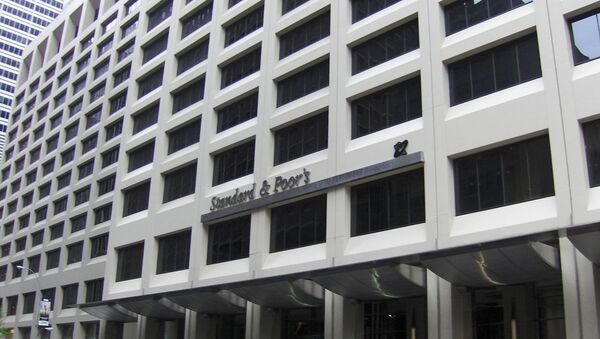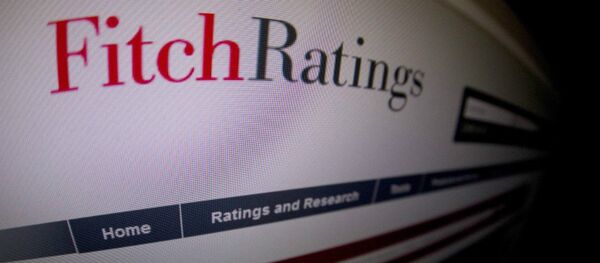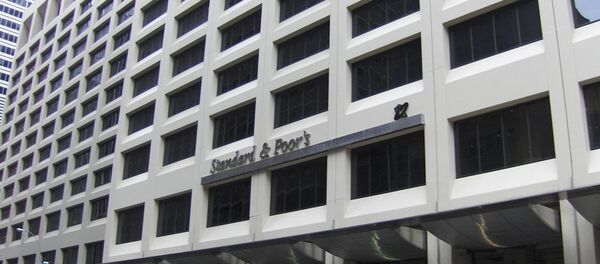MOSCOW, January 22 (Sputnik) — Wednesday's unprecedented settlement between Standard & Poor's Ratings Services (S&P) and the US Securities and Exchange Commission (SEC) over S&P's deliberately inflated grades of risky mortgage securities represents a big penalty for one of the "Big Three" ratings agencies and a very public punishment.
The credit ratings firm will pay over $70 million for violating several federal security laws and misrepresenting ratings as objective.
The settlement comes well after the end of the 2008 global financial crisis, in which the "Big Three" ratings firms – S&P, Moody's and Fitch – rubber-stamped junk bonds for their own financial gain by giving them AAA ratings to make them more appetizing for investors.
The payment is likely to be a "warming-up" ahead of a much bigger penalty, reported to be as high as $1.37 billion, to the US Justice Department and a dozen other US states, being negotiated right now.
According to the SEC, the credit ratings firm "elevated its own financial interests above investors by loosening its rating criteria to obtain business and then obscuring these changes from investors."
In particular, S&P has been criticized for secretly altering, in 2011, its CMBS ratings process to rate transactions using different data sets after previously asserting that it used only one set of criteria.
Another SEC complaint argued that the agency overhauled its ratings in 2012 after losing CMBS rating business, making itself more attractive to clients by claiming that it had a new credit enhancement level that could withstand Great Depression-era levels of economic stress. Later it was proven it kept investors in the dark by suggesting its criteria were immune.
The US regulator also found internal controls failures in S&P's mortgage bond rating methods. The SEC said the ratings firm made assumptions that were inconsistent with its ratings methods and resorted to workarounds not fully disclosed to investors.
Following these revelations, the US securities watchdog pledged to keep an eye on the "Big Three" by "aggressively policing the integrity and transparency of the credit ratings process."
S&P said in a statement that, while it agreed to the fine, it did not admit or deny any of these charges.
In 2009, the S&P came under fire for downgrading Greece's credit rating, in a move that contributed to the country's economic meltdown. Greece was the first Eurozone country to have its debt rating slashed to junk, despite protests from Brussels.
The European Union criticized the three agencies for labeling Greece a risky investment, thereby driving up the cost of credits and scaring off potential investors.
At the same time, it was widely reported that S&P, Moody's and Fitch were helping banks sell risky securities during the 2008 crisis. It has been revealed that banks paid the agencies to disguise junk bonds as merely low-risk. When the US housing bubble exploded many of those bonds turned out to be worthless.
Investors nonetheless maintain a certain level of trust in assessments made by the three major rating agencies, and their judgment is still considered critical to investment decisions made at banks and other financial institutions.





